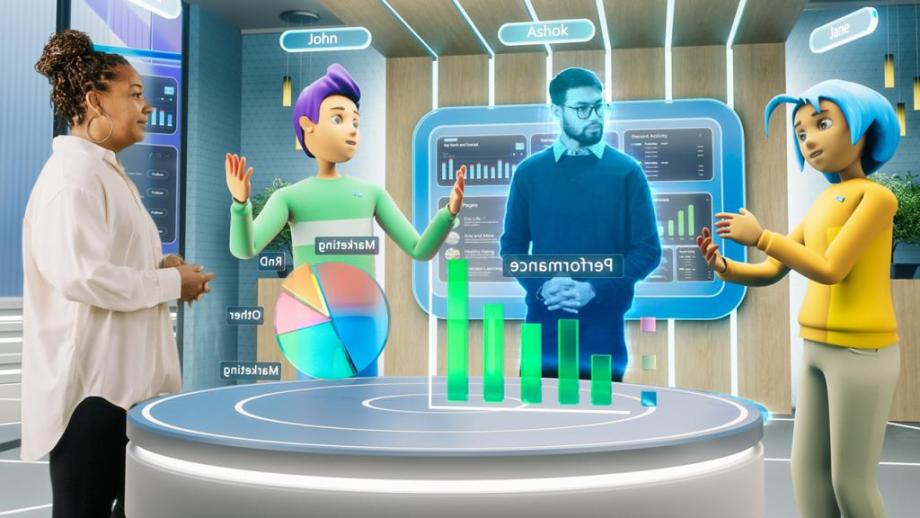So do we really want to stay home and put a headset or does the daily commute, queue for coffee and office interactions still define the working day (after work drinks is another story)
The promise of the metaverse includes global accessibility, cost efficiency, and customized virtual office spaces. The idea is that virtual offices eliminate geographical constraints, enabling seamless collaboration across borders.
The Metaverse claims to reduce physical office expense and allow companies to design digital spaces that reflect their brand and culture. These environments are supposed to offer tools to minimize distractions and foster productivity, with avatar-based interactions promoting inclusiveness and creativity.
Despite these apparent benefits, challenges persist. Many employees find it difficult to adapt to new virtual tools, and prolonged virtual interaction can lead to digital fatigue. Additionally, maintaining a sense of team cohesion and combating loneliness in a fully virtual setup are significant concerns
Companies like Accenture and Unilever are pioneering the use of metaverse technologies for meetings, team-building, and training, with notable success. Accenture, for example, uses VR platforms to enhance engagement and innovation, while Unilever employs gamified platforms to boost learning and skill development.
Summary of Metaverse and VR in Office Work
- High Expectations vs. Reality:
Initially, the metaverse was heralded as the future of work, where virtual reality would revolutionize office environments. Expectations included seamless virtual meetings, collaborative virtual workspaces, and increased productivity.
- Technical Challenges:
High costs of VR hardware and software. Technical issues such as lag, resolution quality, and user discomfort. Limited integration with existing workplace software and tools.
- User Adoption and Comfort:
Many employees find VR equipment cumbersome and uncomfortable for long periods. There is a significant learning curve associated with using VR technology effectively.
- Business Readiness:
Not all businesses are ready or willing to invest in the necessary infrastructure. Concerns about security, data privacy, and the overall return on investment.
- Social and Practical Considerations:
The physical separation of remote work versus the immersive nature of VR can lead to a disconnect. Employees often prefer traditional video calls and emails over VR meetings due to simplicity and familiarity.
- Future Outlook:
Despite current slow growth, there is optimism that improvements in technology and decreasing costs will eventually make VR a viable option for some aspects of office work. Innovations in AR (Augmented Reality) might bridge some gaps between virtual and physical work environments more effectively
In brief, while the metaverse holds substantial potential for redefining office work, its widespread adoption is gradual, constrained by technical, psychological, and organizational challenges. The future of work may very well see a hybrid model where virtual and physical offices coexist, offering flexibility and retaining the benefits of in-person interactions.
If your company needs help connecting hybrid experiences, WaveFX is UK event production company specialising in live event streaming. Trusted globally for over 20 years please do get in touch to chat through your next live, virtual or hybrid event. Call Jamie 01223 55600 or email hello@wavefx.co.uk
#eventproduction #webcast #livestream #hybridevents #VRevent



